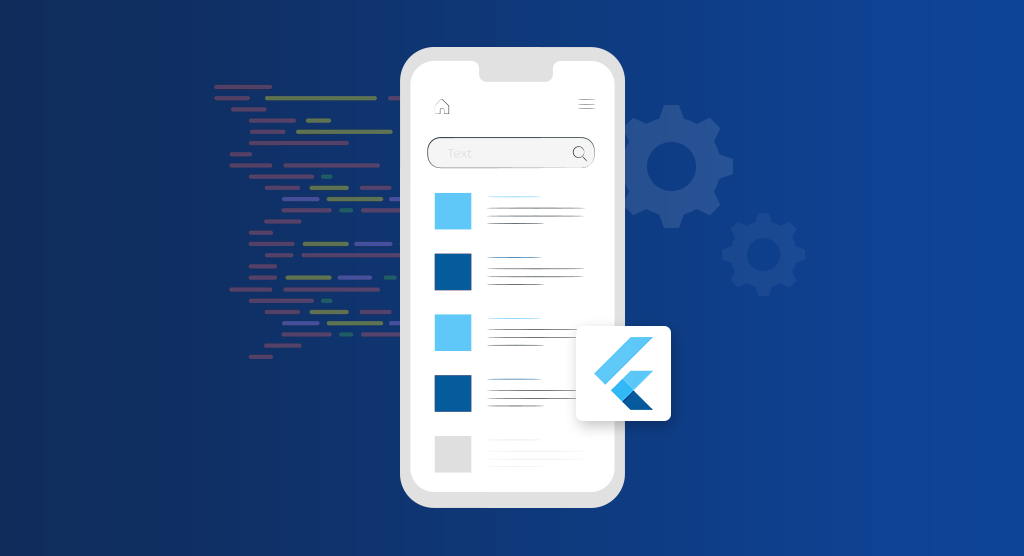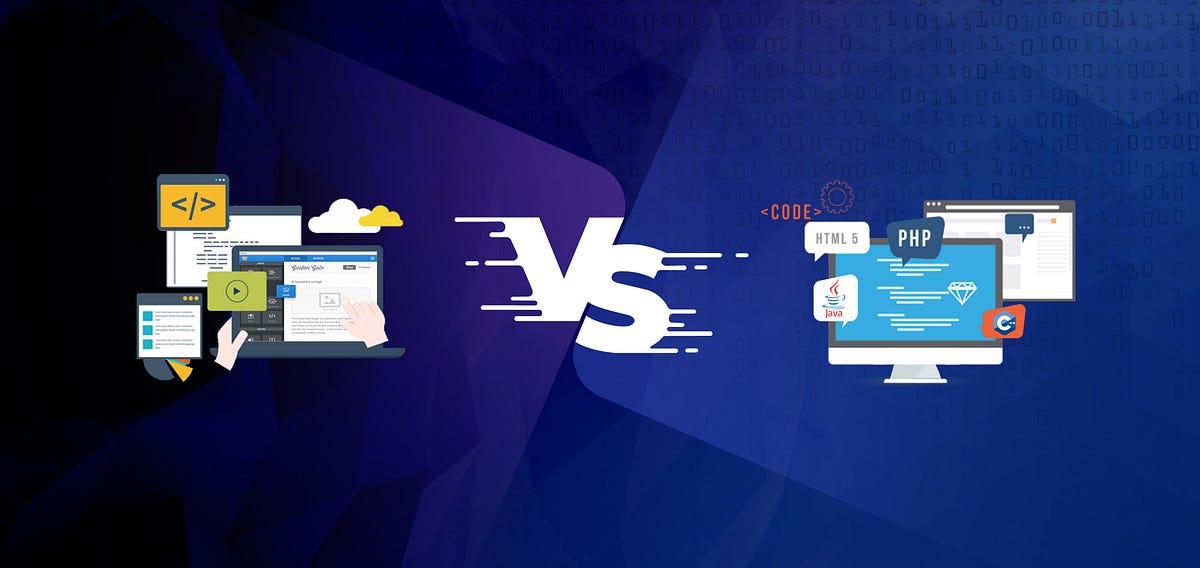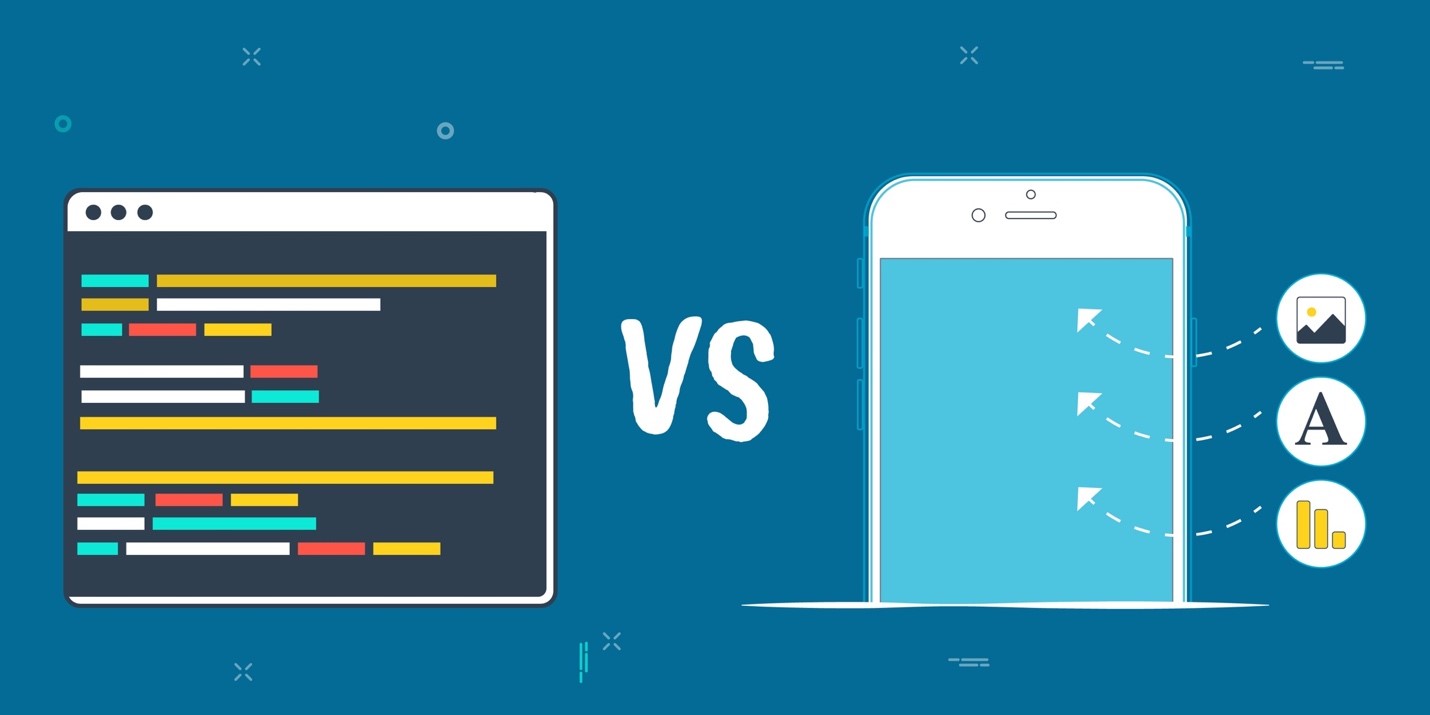In today’s fast-paced digital world, businesses need to stay ahead of the competition by keeping up with the latest technological advancements. The rise of no-code app development has been a game-changer in the industry, allowing businesses to create custom applications without the need for extensive coding knowledge. This revolutionary approach to app development has opened up a world of opportunities for businesses of all sizes, enabling them to develop digital solutions that are customizable, scalable, and cost-effective.
In this article, we’ll explore the rise of no-code app development and what you need to know to leverage it for your business. From the benefits of no-code development to the top platforms available, we’ll cover all the essentials to help you stay ahead of the curve and create cutting-edge applications that meet your business needs. So, let’s dive in and discover the power of no-code app development together!
What is no-code app development?
No-code app development is a process of creating custom applications without the need for extensive coding knowledge. It is a visual development environment that allows users to build applications using drag-and-drop interfaces, pre-built templates, and simple logic statements. No-code platforms typically offer a range of features such as data integration, user authentication, and app deployment, making it easy for non-technical users to create complex applications.

No-code app development empowers businesses to create custom applications that meet their unique requirements. It enables businesses to build applications faster and at a lower cost than traditional app development methods. No-code platforms offer a range of pre-built templates, modules, and connectors that can be easily customized to meet specific business needs.
No-code app development is not just limited to simple applications. It can be used to build complex applications such as CRM systems, e-commerce platforms, and even mobile applications. No-code app development platforms are designed to provide businesses with the flexibility and scalability needed to develop applications that can grow and evolve with their business needs.
Benefits of no-code app development for businesses
No-code app development offers several benefits for businesses, including:
1. Speed and Agility
One of the most significant benefits of no-code app development is speed. No-code platforms enable businesses to create applications quickly and efficiently, reducing the time and cost associated with traditional app development. With no-code app development, businesses can build applications in a matter of days or weeks, rather than months or years.
No-code platforms also offer agility, enabling businesses to make changes to their applications quickly and easily. This is particularly important in today’s fast-paced business environment, where businesses need to respond quickly to changing market conditions and customer needs.
2. Cost-Effective
No-code app development is cost-effective, as it eliminates the need for extensive coding knowledge and reduces the time and cost associated with traditional app development. No-code platforms often offer a range of pre-built templates, modules, and connectors, which can be easily customized to meet specific business needs. This reduces the need for custom coding, which can be expensive and time-consuming.
No-code app development also reduces the need for IT staff, as non-technical users can build applications themselves. This reduces the burden on IT staff, freeing them up to focus on more critical tasks.
3. Customizable
No-code app development platforms offer a range of pre-built templates, modules, and connectors, which can be easily customized to meet specific business needs. This allows businesses to create custom applications that meet their unique requirements, rather than relying on off-the-shelf solutions that may not meet their needs.
No-code platforms also offer the flexibility to make changes to applications quickly and easily, allowing businesses to adapt to changing market conditions and customer needs.
4. User-Friendly
No-code app development platforms are designed to be user-friendly, enabling non-technical users to build applications easily. These platforms offer a range of drag-and-drop interfaces, pre-built templates, and simple logic statements, making it easy for users to create complex applications without extensive coding knowledge.
No-code platforms also offer a range of tutorials, documentation, and support, enabling users to learn and develop their skills quickly and easily.
5. Scalable
No-code app development platforms are designed to be scalable, enabling businesses to develop applications that can grow and evolve with their needs. These platforms offer a range of features such as data integration, user authentication, and app deployment, making it easy for businesses to scale their applications as their needs change.
No-code platforms also offer the flexibility to integrate with other applications and systems, enabling businesses to create a cohesive digital ecosystem that can support their business needs.
The growth of no-code app development in recent years
No-code app development has been growing in popularity in recent years, with businesses of all sizes using these platforms to build custom applications. The rise of no-code app development can be attributed to several factors, including:
1. The Need for Digital Transformation
The need for digital transformation has been a driving force behind the growth of no-code app development. As businesses seek to digitize their operations, they need to develop custom applications that can support their unique requirements. No-code app development offers a cost-effective and efficient way to develop these applications, enabling businesses to achieve their digital transformation goals quickly and easily.
2. The Rise of Citizen Developers
The rise of citizen developers has also contributed to the growth of no-code app development. Citizen developers are non-technical users who build applications using no-code platforms. These users are often business analysts, project managers, or other non-IT staff who have a deep understanding of the business requirements.
Citizen developers offer several benefits for businesses, including speed, agility, and cost-effectiveness. They enable businesses to develop applications quickly and efficiently, reducing the burden on IT staff and freeing them up to focus on more critical tasks.
3. The Advancements in No-Code App Development Platforms
Advancements in no-code app development platforms have also contributed to the growth of this technology. No-code platforms have become more sophisticated in recent years, offering a range of features and capabilities that enable businesses to develop complex applications easily.
These platforms offer a range of pre-built templates, modules, and connectors, which can be easily customized to meet specific business needs. They also offer a range of integrations, enabling businesses to connect their applications to other systems and applications.
No-code app development vs. a traditional app development
No-code app development and traditional app development are two distinct approaches to app development. Traditional app development involves writing code from scratch, which can be time-consuming and expensive. No-code app development, on the other hand, uses visual development environments that enable non-technical users to build applications quickly and easily.

No-code app development offers several benefits over traditional app development, including speed, agility, and cost-effectiveness. No-code platforms offer a range of pre-built templates, modules, and connectors, which can be easily customized to meet specific business needs. This reduces the need for custom coding, which can be expensive and time-consuming.
Traditional app development, however, offers more control over the application development process. Developers can write custom code to meet specific requirements, offering greater flexibility and customization.
No-code app development platforms – a comparison of the top options
There are several no-code app development platforms available on the market, each with its own unique features and capabilities. Here’s a comparison of the top options:
1. AppSheet
AppSheet is a no-code app development platform that enables businesses to create custom applications using spreadsheets. The platform offers a range of features, including data integration, user authentication, and app deployment. AppSheet is designed to be user-friendly, enabling non-technical users to build applications easily.
2. Bubble
Bubble is a no-code app development platform that enables businesses to create complex applications without the need for coding knowledge. The platform offers a range of features, including drag-and-drop interfaces, pre-built templates, and integrations with other systems and applications.
3. Airtable
Airtable is a no-code app development platform that enables businesses to create custom applications using spreadsheets. The platform offers a range of features, including data integration, user authentication, and app deployment. Airtable is designed to be user-friendly, enabling non-technical users to build applications easily.
4. Zoho Creator
Zoho Creator is a no-code app development platform that enables businesses to create custom applications using drag-and-drop interfaces. The platform offers a range of features, including data integration, user authentication, and app deployment. Zoho Creator is designed to be user-friendly, enabling non-technical users to build applications easily.
5. Glide
Glide is a no-code app development platform that enables businesses to create mobile applications without the need for coding knowledge. The platform offers a range of features, including drag-and-drop interfaces, pre-built templates, and integrations with other systems and applications. Glide is designed to be user-friendly, enabling non-technical users to build applications easily.
Features and limitations of no-code app development platforms
No-code app development platforms offer a range of features that enable businesses to create custom applications quickly and easily. These platforms typically offer drag-and-drop interfaces, pre-built templates, and integrations with other systems and applications.

However, there are some limitations to no-code app development platforms. These platforms often have limitations in terms of customization and flexibility, as they are designed to be user-friendly and accessible to non-technical users. No-code platforms may also have limitations in terms of functionality and scalability, as they are not designed to handle complex applications.
How to get started with no-code app development for your business
Getting started with no-code app development is easy. Here are some steps to follow:
1. Identify Your Business Needs
The first step in getting started with no-code app development is to identify your business needs. Determine what type of application you need to develop and what features and capabilities it should have.
2. Choose a No-Code Platform
The next step is to choose a no-code platform that meets your business needs. Consider factors such as ease of use, customization, and functionality when choosing a platform.
3. Learn the Platform
Once you have chosen a platform, it’s time to learn how to use it. Most no-code platforms offer tutorials, documentation, and support to help users learn how to use the platform.
4. Design Your Application
After learning the platform, it’s time to design your application. Use the platform’s drag-and-drop interface and pre-built templates to create your application.
5. Test and Deploy Your Application
After designing your application, it’s time to test and deploy it. Most no-code platforms offer testing and deployment features that enable users to test their applications and deploy them to a live environment.
Best practices for no-code app development success
Here are some best practices to follow for no-code app development success:
1. Start Small
Start with a small application and build on it as you gain experience with the platform. This will help you learn the platform and ensure that you are comfortable using it before tackling more complex projects.
2. Use Pre-Built Templates
No-code platforms offer a range of pre-built templates that can be customized to meet specific business needs. Use these templates to save time and ensure that your application meets best practices for design and functionality.
3. Keep It Simple
Keep your application simple and easy to use. Avoid adding unnecessary features or functionality that may confuse users or make the application difficult to use.
4. Test Your Application
Test your application thoroughly to ensure that it works as intended. Use the testing features offered by the no-code platform to test your application in a simulated environment before deploying it to a live environment.
5. Seek Help When Needed
Don’t be afraid to seek help from the no-code platform’s support team or community when needed. They can provide guidance and assistance to help you overcome any challenges you may encounter.
Examples of successful no-code app development projects
There are several examples of successful no-code app development projects. Here are a few:
1. Growlabs
Growlabs is a sales automation platform that was built using the no-code app development platform Bubble. The platform enables businesses to automate their sales processes, from lead generation to closing deals.
2. Phebi
Phebi is a chatbot platform that was built using the no-code app development platform Glide. The platform enables businesses to create chatbots that can handle customer support, lead generation, and other tasks.
3. DroneX
DroneX is a drone management platform that was built using the no-code app development platform AppSheet. The platform enables businesses to manage their drone fleets, from flight planning to data analysis.
Future of no-code app development and its impact on businesses
The future of no-code app development is bright. As businesses continue to seek ways to digitize their operations, the demand for no-code app development platforms will continue to grow. No-code platforms will become more sophisticated, offering a range of features and capabilities that enable businesses to develop complex applications easily.
No-code app development will continue to offer several benefits for businesses, including speed, agility, and cost-effectiveness. It will enable businesses to develop custom applications quickly and efficiently, reducing the time and cost associated with traditional app development.
Conclusion
No-code app development is a game-changer in the industry, enabling businesses to develop custom applications quickly and efficiently. It offers several benefits over traditional app development, including speed, agility, and cost-effectiveness. No-code platforms are becoming more sophisticated, offering a range of features and capabilities that enable businesses to develop complex applications easily. As businesses seek ways to digitize their operations, the demand for no-code app development platforms will continue to grow. By following best practices and leveraging the power of no-code app development, businesses can stay ahead of the curve and create cutting-edge applications that meet their unique requirements.



















